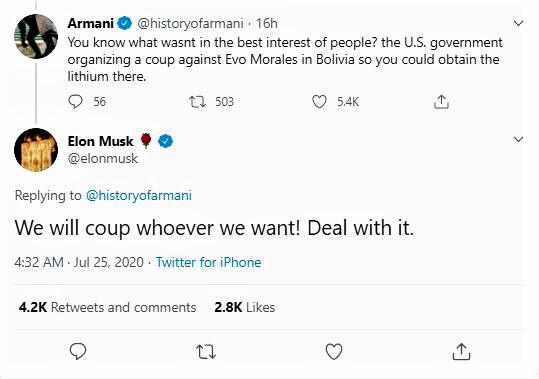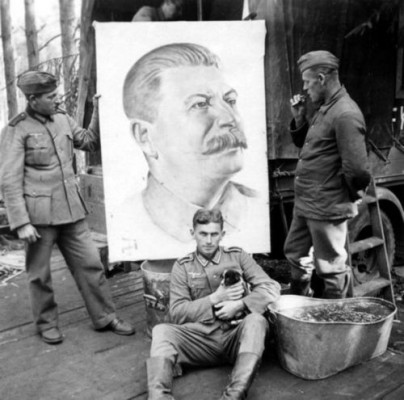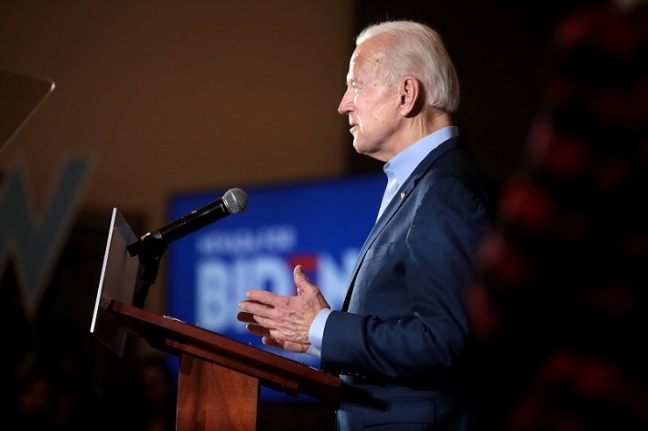Bilderberg does China
By Pepe Escobar posted with his permission and widely cross-posted.
Discreetly, as under the radar as a looming virus, the 68th Bilderberg meeting is currently underway in Washington, D.C. Nothing to see here. No conspiracy theories about a “secret cabal”, please. This is just a docile, “diverse group of political leaders and experts” having a chat, a laugh, and a bubbly.
Still, one cannot but notice that the choice of venue speaks more volumes than the entire – burned to the ground – Library of Alexandria. In the year heralding the explosion of a much-awaited NATO vs. Russia proxy war, discussing its myriad ramifications does suit the capital of the Empire of Lies, much more than Davos a few weeks ago, where one Henry Kissinger sent them into a frenzy by advancing the necessity of a toxic compromise named “diplomacy”.
The list of Bilderberg 2022 participants is a joy to peruse. Here are just some of the stalwarts:
James Baker, Consigliere extraordinaire, now a mere Director of the Office of Net Assessment at the Pentagon.
José Manuel Barroso, former head of the European Commission, later the recipient of a golden parachute in the form of Chairman of Goldman Sachs International.
Albert Bourla, the Pfizer Big Guy.
William Burns, CIA director.
Kurt Campbell, the guy who invented the Obama/Hillary “pivot to Asia”, now White House Coordinator for Indo-Pacific.
Mark Carney, former Bank of England, one of the designers of the Great Reset, now Vice Chair of Brookfield Asset Management.
Henry Kissinger, The Establishment’s Voice (or a war criminal: take your pick).
Charles Michel, President of the European Council.
Minton Beddoes, Editor-in-Chief of The Economist, which will duly relay all major Bilderberg directives in the magazine’s upcoming cover stories.
David Petraeus, certified loser of endless surges and Chairman of KKR Global Institute.
Mark Rutte, hawkish Prime Minister of the Netherlands.
Jens Stoltenberg, NATO top parrot, sorry, secretary-general.
Jake Sullivan, Director of the National Security Council.
The ideological and geopolitical affiliations of these members of the “diverse group” need no further elaboration. It gets positively sexier when we see what they will be discussing.
Among other issues we find “NATO challenges”; “Indo-Pacific realignment”; “continuity of government and economy” (Conspirationists: continuity in case of nuclear war?); “disruption of the global financial system” (already on); “post-pandemic health” (Conspirationists: how to engineer the next pandemic?); “trade and deglobalization”; and of course, the choice wagyu beef steaks: Russia and China.
As Bilderberg follows Chatham House Rules, mere mortals won’t have a clue of what they actually “proposed” or approved, and none of the participants will be allowed to talk about it with anyone else. One of my top New York sources, with direct access to most of the Masters of the Universe, loves to quip that Davos and Bilderberg are just for the messenger boys: the guys who really run the show don’t even bother to show up, ensconced in their uber-private meetings in uber-private clubs, where the real decisions are made.
Still, anyone following in some detail the rotten state of the “rules-based international order” will have a pretty good idea about the 2022 Bilderberg chatter.
What the Chinese say
Secretary of State Little Blinken – Sullivan’s sidekick in the ongoing Crash Test Dummy administration’s Dumb and Dumber remake – has recently claimed that China “supports” Russia on Ukraine instead of remaining neutral.
What really matters here is that Little Blinken is implying that Beijing wants to destabilize Asia-Pacific – which is a notorious absurdity. Yet that’s the master narrative that must pave the way for the US to muscle up its “Indo-Pacific” concoction. And that’s the briefing Sullivan and Kurt Campbell will be delivering to the “diverse group”.
Davos – with its new self-billed mantra, “The Great Narrative” – completely excluded Russia. Bilderberg is mostly about containment of China – which after all is the number one existential threat to the Empire of Lies and its satrapies.
Rather than wait for Bilderberg morsels dispensed by The Economist, it’s much more productive to check out what a cross-section of fact-based Chinese intelligentsia thinks about the new “collective West” racket.
Let’s start with Justin Lin Yifu, former Chief Economist of the World Bank and now Dean of the Institute of New Structural Economics at Peking University, and Sheng Songcheng, former head of the Financial Survey and Statistic Dept. at the Bank of China.
They advance that if China achieves “dynamic zero infection” on Covid-19 by the end of May (that actually happened: see the end of the Shanghai lockdown), China’s economy may grow by 5.5% in 2022.
They dismiss the imperial attempt to establish an “Asian version of NATO”: “As long as China continues to grow at a higher rate and to open up, European and ASEAN countries would not participate in the US’s decoupling trap so as to ensure their economic growth and job creation.”
Three academics from the Shanghai Institute of International Studies and Fudan University touch on the same point: the American-announced “Indo-Pacific Economic Framework”, supposed to be the economic pillar of the Indo-Pacific strategy, is nothing but a cumbersome attempt to “weaken the internal cohesion and regional autonomy of ASEAN.”
Liu Zongyi stresses that China’s position at the heart of the vastly inter-connected Asian supply chains “has been consolidated”, especially now with the onset of the largest trade deal on the planet, the Regional Comprehensive Economic Partnership (RCEP).
Chen Wengling, Chief Economist of a think tank under the key National Development and Reform Commission, notes the “comprehensive ideological and technological war against China” launched by the Americans.
But he’s keen to stress how they are “not ready for a hot war as the US and Chinese economies are so closely linked.” The crucial vector is that “the US has not yet made substantial progress in strengthening its supply chain focusing on four key fields including semiconductors.”
Chen worries about “China’s energy security”; “China’s silence” on US sanctions on Russia, which “may result in US retaliation”; and crucially, how “China’s plan of building the Belt and Road Initiative (BRI) with Ukraine and EU countries will be affected.” What will happen in practice is BRI will be privileging economic corridors across Iran and West Asia, as well as the Maritime Silk Road, instead of the Trans-Siberian corridor across Russia.
It’s up to Yu Yongding, from the Chinese Academy of Social Sciences (CASS) and a former member of the Monetary Policy Committee of the Central Bank, to go for the jugular, noting how” the global financial system and the US dollar have been weaponized into geopolitical tools. The nefarious behavior of the US in freezing foreign exchange reserves has not only seriously damaged the international credibility of the US but has also shaken the credit foundation of the dominant international financial system in the West.”
 He expresses the consensus among Chinese intel, that “if there is a geopolitical conflict between the US and China, then China’s overseas assets will be seriously threatened, especially its huge reserves. Therefore, the composition of China’s external financial assets and liabilities urgently needs to be adjusted and the portion of US dollar-denominated assets in its reserves portfolio should be reduced.”
He expresses the consensus among Chinese intel, that “if there is a geopolitical conflict between the US and China, then China’s overseas assets will be seriously threatened, especially its huge reserves. Therefore, the composition of China’s external financial assets and liabilities urgently needs to be adjusted and the portion of US dollar-denominated assets in its reserves portfolio should be reduced.”
This chessboard sucks
A serious debate is raging across virtually all sectors of Chinese society on the American weaponization of the world financial casino. The conclusions are inevitable: get rid of US Treasuries, fast, by any means necessary; more imports of commodities and strategic materials (thus the importance of the Russia-China strategic partnership); and firmly secure overseas assets, especially those foreign currency reserves.
Meanwhile, Bilderberg’s “diverse group”, on the other side of the pond, is discussing, among other things, what will really happen in case they force the IMF racket to blow up (a key plan to implement The Great Reset, or “Great Narrative”).
They are starting to literally freak out with the slow but sure emergence of an alternative, resource-based monetary/financial system: exactly what the Eurasia Economic Union (EAEU) is currently discussing and designing, with Chinese input.
Imagine a counter-Bilderberg system where a basket of Global South actors, resource-rich but economically poor, are able to issue their own currencies backed by commodities, and finally get rid of their status of IMF hostages. They are all paying close attention to the Russian gas-for-rubles experiment.
And in China’s particular case, what will always matter is loads of productive capital underpinning a massive, extremely deep industrial and civil infrastructure.
No wonder Davos and Bilderberg messenger boys, when they look at The Grand Chessboard, are filled with dread: their era of perpetual free lunch is over. What would delight cynics, skeptics, neoplatonists and Taoists galore is that it was Davos-Bilderberg Men (and Women) who actually boxed themselves into zugzwang.
All dressed up – with nowhere to go. Even JP Morgan’s Jamie Dimon – who didn’t even bother to go to Bilderberg – is scared, saying an economic “hurricane” is coming. And overturning the chessboard is no remedy: at best that may invite a ceremonious tuxedo visit by Mr. Sarmat and Mr. Zircon carrying some hypersonic bubbly.
The views expressed herein are solely those of the author and may or may not reflect those of The Greanville Post. However, we do think they are important enough to be transmitted to a wider audience.

| Did you sign up yet for our FREE bulletin? |
[premium_newsticker id=”211406″]

This work is licensed under a Creative Commons Attribution-NonCommercial 4.0 International License



















